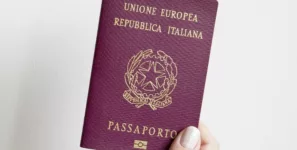The press reports concerning the plight of the Windrush generation and their descendants has done much to highlight the iniquities of the UK’s immigration policy. However, it is also bringing to wider public knowledge an additional trap that immigrants and migrants from just about anywhere in the world are also finding themselves ensnared in: rogue immigration law firms.
In a recent High Court decision, Sathivel, R v Secretary of State for the Home Department, Mr Justice Green castigated three firms for their ‘serious and persistent failure’ to adhere to expected professional standards and referred all three to the Solicitors Regulation Authority.
Those seeking immigration solicitors may well be asking themselves what, exactly, these firms and perhaps also others like them are doing wrong. The Sathivel judgement highlights several issues.
- A tendency among some practitioners to initiate legal proceedings with no goal other than to hold up the immigration process. While, on one level, this may be what the applicant wants, on another it is thoroughly unsatisfactory. Not only does the applicant, and perhaps also their family, continue to live in a state of limbo, they may also find themselves encouraged to pour thousands of pounds into what ultimately may be an unwinnable case.
- Even untenable applications or appeals may take years to wind their way through the judicial process. This offers increased scope for an applicant to develop a “private life” claim under Article 8, such as via marriage, including sham marriages, and having children. In the judge’s view, this damages the integrity of the judicial process and amounts to little more than a ‘game played between applicants and the Home Office’. As in Sathivel, this may result in an application being considered an abuse of process – a very serious event.
- In some instances, junior, inexperienced or unqualified staff are being entrusted with work that is beyond their capabilities. This can have a variety of consequences, such as misleading drafting that may, in turn, mislead a court.
- Legal advisers that fail to make sufficient enquiries into the history of a case. Accepting a client at their word may result in a submission to court that ‘no even remotely competent lawyer could ever have countenanced…as a proper pleading.’
The court went on to issue guidelines for future immigration applications and appeals. As part of these, it reminded legal advisers that their duty to the court is paramount. Moreover, it stated that ‘when a Show Cause letter is sent [the response must include] a witness statement drafted by a person who is responsible for the case [and who knows] that to lie or deliberately mislead in such a statement may be a contempt of court’.
The court’s findings are not binding on the Solicitors Regulation Authority and this body’s response is still awaited.








